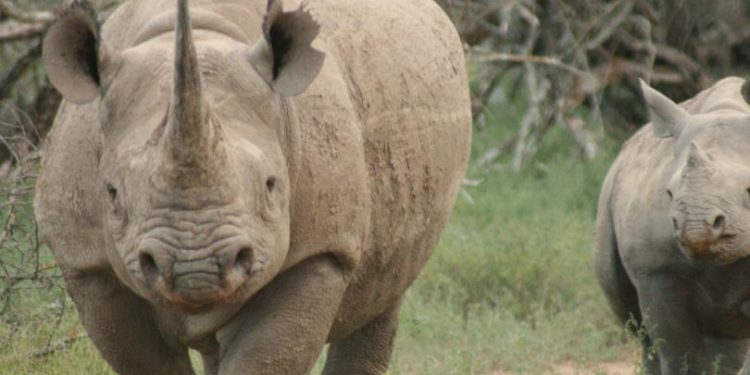The illegal rhino horn trade is one of the most potent and corrupt in the illegal wildlife trafficking arena, resulting in the death of at least 6,000 rhinos in the last decade alone, leaving only 25,000 rhinos remaining. Rhino horn is also one of the most profitable products on the illegal wildlife black market, considered more valuable than gold and platinum.
On November 12th, Al Jazeera held a special screening of the most recent edition of its documentary series: “The Poacher’s Pipeline.” In the film, Al Jazeera investigators follow the illegal supply chain of rhino horns from the fresh kill in Africa to their sale in Asia, specifically in Vietnam and China. The investigation revealed that the rhino horn trade is largely made possible because of its consumer base, which is comprised of high-level government officials and politicians from Africa and Asia.
The documentary follows the sale of rhino horn from its conception, beginning in the Kruger National Park located in South Africa—referred to as “ground zero for the rhino crisis.” Park officials reveal that at least two-to-three park rhinos are killed each night by poachers, who are motivated by the high profit. A single horn can sell for up to $250,000, and the poachers often receive up to 10% of the proceeds, providing just enough motivation to participate.
The investigators also met with several mid-level dealers and importers, who claim they conduct their business with the cooperation of government officials in both Asia and Africa. One dealer, a Chinese restaurateur living in South Africa, detailed connections that make the trade possible—discussing his close ties with officials at the Beijing Airport and within the Chinese government who assist with the trade by facilitating the horn’s trip through customs to Africa. Another mid-level dealer, a massage parlor owner in South Africa, shared his connections to the Department of Interior and his relationship with the former Head of South Africa’s State Security Agency, who became a government minister in 2014. Throughout the documentary, the investigators provide concrete photographic evidence of the involvement of several senior government officials in the trafficking of rhino horn.
Despite action from wildlife trafficking advocates and organizations, such as the Wildlife Justice Commission, the sale of rhino horn remains a strong fixture in illegal wildlife trade. Despite at least 30 examples of abuse of diplomatic privilege by Asian embassies in Africa, the trade continues to be possible thanks to the assistance from corrupt government officials across the two continents. Government officials from both from both regions did not respond to Al Jazeera’s questions or comments regarding their investigative documentary.
One of the best ways to combat illegal wildlife trafficking is to report it to the appropriate authorities. The NWC is a Grand Prize Winner in the Wildlife Crime Tech Challenge, an initiative of USAID in partnership with the National Geographic Society, the Smithsonian Institution, and TRAFFIC. NWC’s Grand Prize-Winning solution, the Secure Internet Wildlife Crime Reporting System, is a secure online platform, a one-stop shop through which whistleblowers can safely and anonymously file reports of wildlife crimes and gain useful information about how wildlife whistleblower laws work.
Watch Poacher’s Pipeline: https://www.aljazeera.com/investigations/the-poachers-pipeline/.
Learn about the National Whistleblower Center’s work to combat wildlife trafficking:
- Monetary Rewards for Wildlife Whistleblowers–A Breakthrough for Environmental Protection
- NWC Project Wins People’s Choice Award
- Congratulations to the Grand Prize Winners!
- Report Wildlife Crimes
- How to partner (for NGOs).
- How to partner (for attorneys).
- If you are a whistleblower seeking legal aid and would like to speak to NWC click here.
- Read more about the National Whistleblower Center’s international work, here.
** Hat Tip to NWC Legal Intern Alexi Nathan for her help with this blog!




